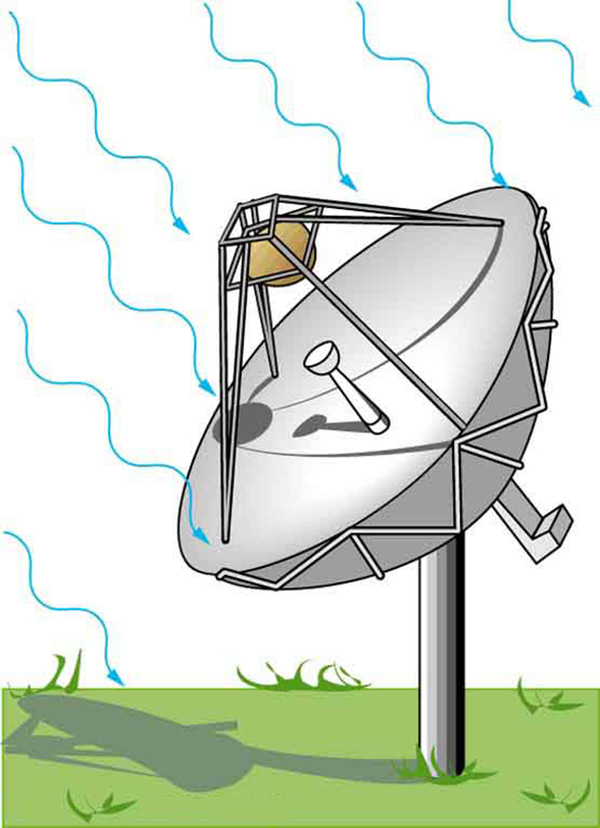| << Chapter < Page | Chapter >> Page > |
An AM radio transmitter broadcasts 50.0 kW of power uniformly in all directions. (a) Assuming all of the radio waves that strike the ground are completely absorbed, and that there is no absorption by the atmosphere or other objects, what is the intensity 30.0 km away? (Hint: Half the power will be spread over the area of a hemisphere.) (b) What is the maximum electric field strength at this distance?
Suppose the maximum safe intensity of microwaves for human exposure is taken to be . (a) If a radar unit leaks 10.0 W of microwaves (other than those sent by its antenna) uniformly in all directions, how far away must you be to be exposed to an intensity considered to be safe? Assume that the power spreads uniformly over the area of a sphere with no complications from absorption or reflection. (b) What is the maximum electric field strength at the safe intensity? (Note that early radar units leaked more than modern ones do. This caused identifiable health problems, such as cataracts, for people who worked near them.)
(a) 89.2 cm
(b) 27.4 V/m
A 2.50-m-diameter university communications satellite dish receives TV signals that have a maximum electric field strength (for one channel) of . (See [link] .) (a) What is the intensity of this wave? (b) What is the power received by the antenna? (c) If the orbiting satellite broadcasts uniformly over an area of (a large fraction of North America), how much power does it radiate?

Lasers can be constructed that produce an extremely high intensity electromagnetic wave for a brief time—called pulsed lasers. They are used to ignite nuclear fusion, for example. Such a laser may produce an electromagnetic wave with a maximum electric field strength of for a time of 1.00 ns. (a) What is the maximum magnetic field strength in the wave? (b) What is the intensity of the beam? (c) What energy does it deliver on a area?
(a) 333 T
(b)
(c) 13.3 kJ
Show that for a continuous sinusoidal electromagnetic wave, the peak intensity is twice the average intensity ( ), using either the fact that , or , where rms means average (actually root mean square, a type of average).
Suppose a source of electromagnetic waves radiates uniformly in all directions in empty space where there are no absorption or interference effects. (a) Show that the intensity is inversely proportional to , the distance from the source squared. (b) Show that the magnitudes of the electric and magnetic fields are inversely proportional to .
(a)
(b)
Integrated Concepts
An circuit with a 5.00-pF capacitor oscillates in such a manner as to radiate at a wavelength of 3.30 m. (a) What is the resonant frequency? (b) What inductance is in series with the capacitor?
Integrated Concepts
What capacitance is needed in series with an inductor to form a circuit that radiates a wavelength of 196 m?
13.5 pF

Notification Switch
Would you like to follow the 'Physics 101' conversation and receive update notifications?